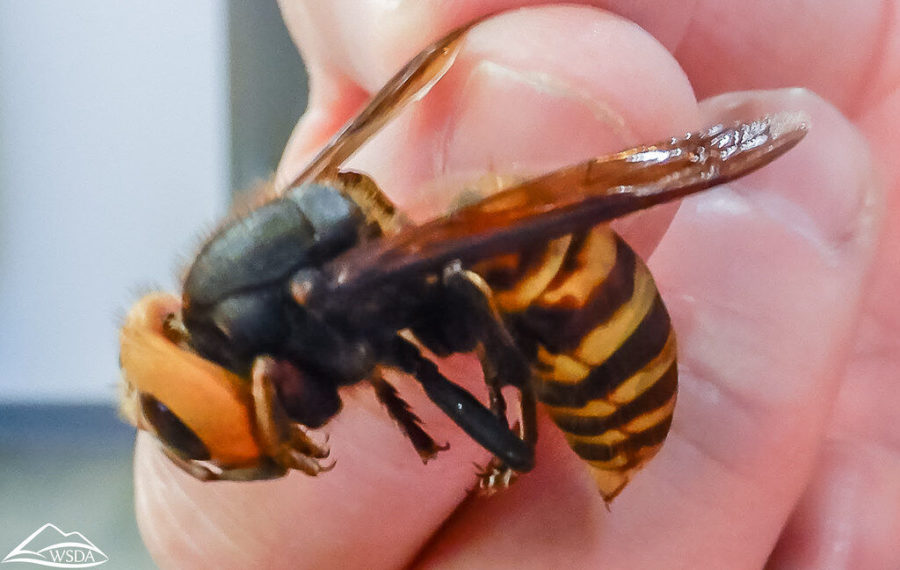Murder hornets may not come to Iowa
The Asian Giant Hornet, Vespa mandarinia, is one of the world’s largest wasps, ranging from around one and a half to two inches in length
June 4, 2020
The Asian giant hornet has been reported to be one of the growing concerns of 2020 and there is no discovery of it coming near Iowa.
The Washington State Department of Agriculture verified two reports of the Asian giant hornet in Blaine, Washington. Canada had also discovered the insect in two locations near British Columbia during the fall of 2019.
The Asian giant hornet, Vespa mandarinia, is one of the world’s largest wasps ranging from around one and a half to two inches in length. The hornet is black and yellow with big, prominent eyes and can usually be found in large colonies that rest in the ground.
The Asian giant hornet has gained the nickname of “murder hornets” as some researchers say they are large in size, but they also have large quarter-inch stingers and are viciously harmful.
Donald Lewis, Iowa State University Extension Outreach entomologist and professor in entomology, said he urges citizens that if an allergic reaction occurs to being stung, report to the emergency room immediately.
“The Asian giant hornet is large and it has a very painful sting,” Lewis said. “They only sting when only threatened or handled. The pain from the injection of venom in the skin is painful, doesn’t mean it’s going to be any worse for a long time. People who die from being stung have a secondary reaction, called anaphylactic shock, and an allergic reaction to the sting but it only happens to some people, not everyone.”
Other reports have stated the hornets sting repeatedly with a harsh pain that feels like a hot nail drilling into the flesh.
Lewis also said the likelihood of a fatal reaction depends on body chemistries. Home remedies and medications are commonly used when dealing with a sting from an insect, though Lewis said he does not know how that will work for this type of insect.
According to Smithsonian Magazine, the hornets are also voracious predators capable of massacring entire honeybee hives in a matter of hours — decapitating thousands of the hive’s adult bees and absconding with the helpless larvae to feed the hornets’ own brood.
Even though honeybees are a lot smaller than their competitors, they have a great defensive mechanism to protect themselves.
The hornets have not been established yet in the state of Washington, but a small number of them were eradicated and there have been no further discoveries. Lewis said the chances of the Asian giant hornet coming to Iowa is very slim.
“There will be a process and it will not be up to the homeowners, the federal and the state Department of Agriculture would institute the treatments necessary and the investigation to make sure that the problem would be completely eradicated not just from one spot but from other areas around it,” Lewis said.
Lewis also said if they do arrive in Iowa, the Iowa Department of Agriculture and Iowa State have inspection services that will eradicate the insect as soon as possible. In addition to that they will take care of the treatment and survey citizens in that area.
More information about identifying specimens can be found at the Iowa State University Plant and Insect Diagnostic Clinic through email.







